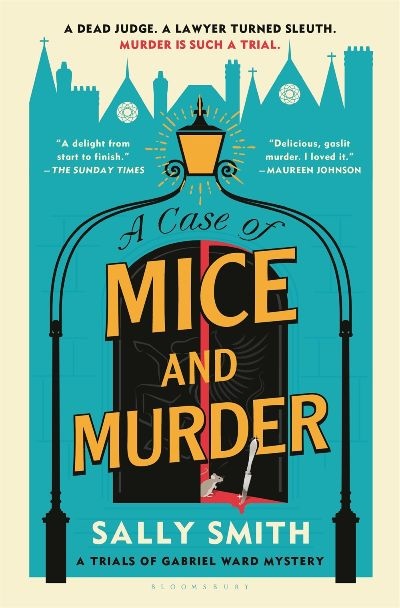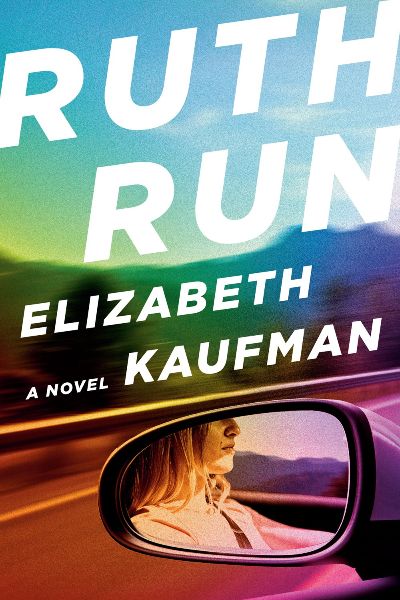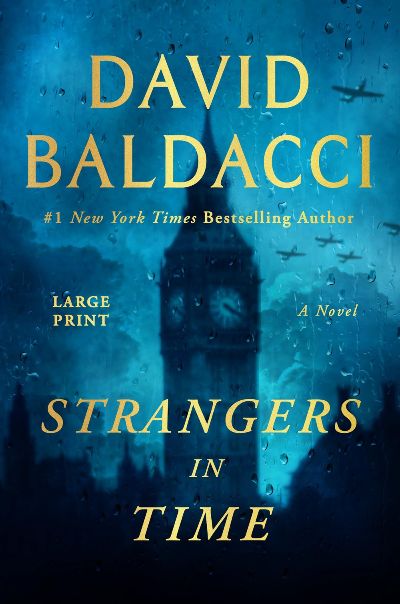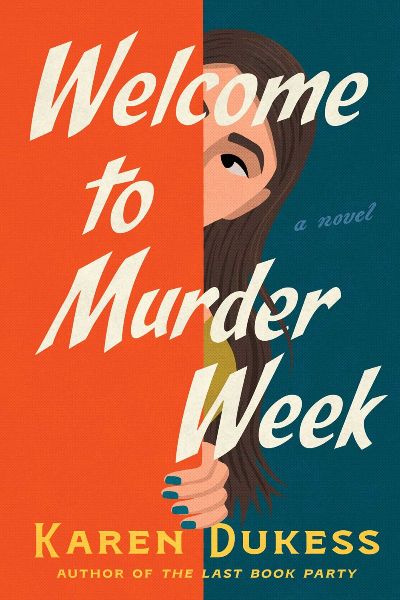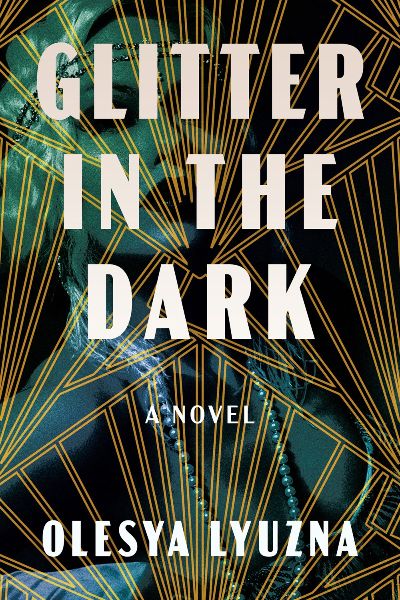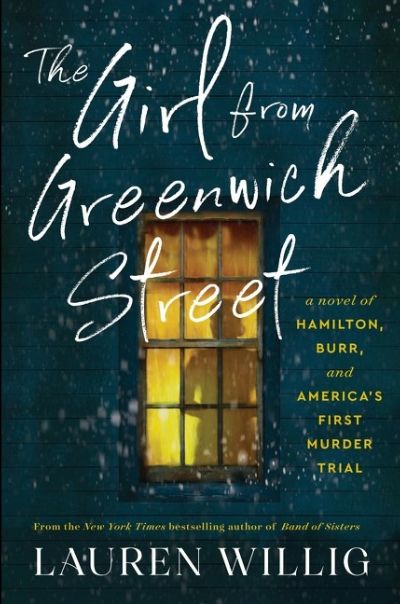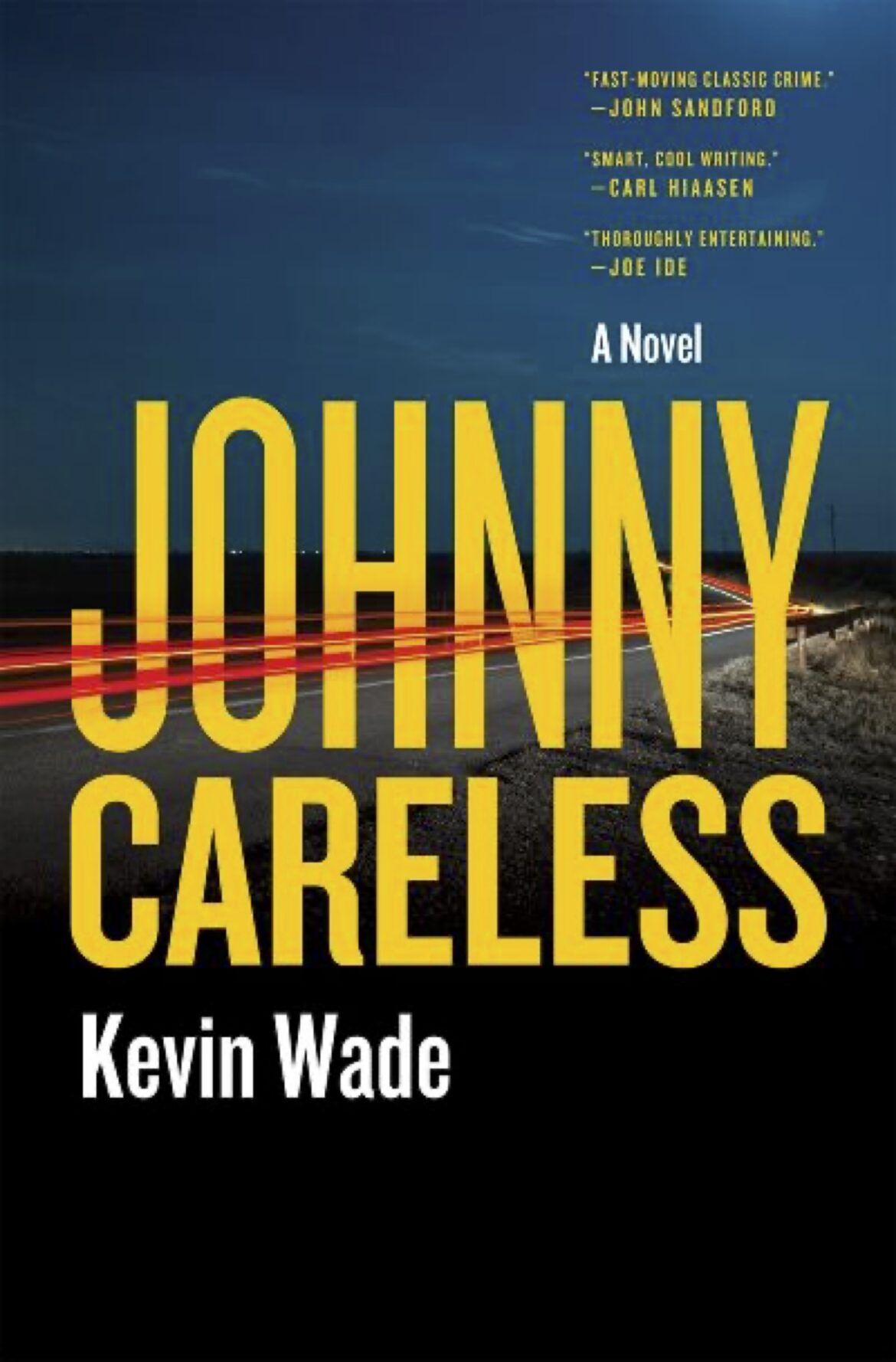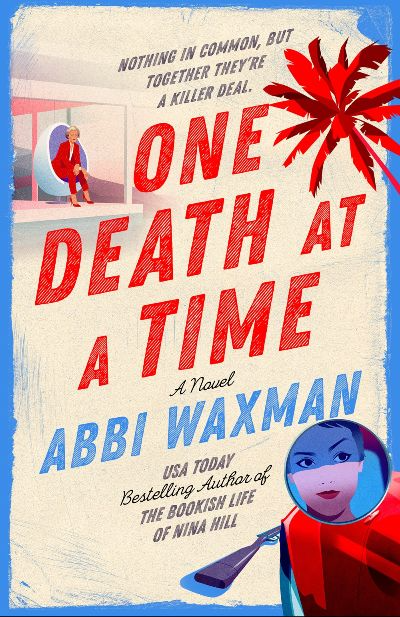Attention anglophiles, lovers of dazzling historical fiction, and fans of a good draught of droll humor. This book is for you. Set in the Inner Temple, the heart of legal London for centuries, with its own degree of independence (not unlike the Vatican), the novel features Gabriel Ward KC, a brilliant legal mind who moves each day at the same measured pace between his chambers, which are crammed with books on nearly all topics; his office; and the dining hall. But on May 21, 1901, he emerges from his room only to discover a body on his doorstep. In fact, Ward is quick to identify it as the corpse of the Lord Chief Justice, who now has a Temple carving knife in his chest. But what is even more shocking isn’t that he is clad in evening wear, but that his feet are bare. How delicious is this plot? Appointed by the Temple’s Treasurer to investigate the murderer, Ward is paired with the eager and charming young Constable Wright, whose street knowledge turns out to be quite an asset, gaining Ward’s respect. The investigation drags the pair from the upper classes to the homeless, with an entirely separate court case—in children’s publishing, no less—providing some entertainment of its own. Quite simply, this is one of the very best debuts I’ve read in a long time; it’s sure to delight the Osman and Thorogood crews and readers of Sarah Caldwell’s legal murder mysteries as well.
Book of the Week
Ruth has an unconventional way of making money, and her method of robbing banks through a code in a hacked chip has finally caught up with her in Kaufman’s debut thriller. Taking cash in small amounts from transactions has made her a very rich cybercriminal. When alarms signal she’s been discovered, she grabs her accomplice, and they take off. A government agent named Mike has been watching her for some time and knows everything about Ruth since he feels he launched her career. Mike has planted tracking devices in her home, car, and a bag that never leaves her side, so he knows her every move. When his superiors want her eliminated since her bug is inside the government’s network, Mike agrees to help. However, he seems to have feelings for the woman he considers his protégé, so what is his objective? When Ruth realizes that the authorities are close and her usual tricks won’t be enough, she must improvise. But even though she is elusive and clever, her methods might put her in even more danger than she’s in from the law. Kaufman has created a compelling and complex character in Ruth, and watching her outwit and coordinate her surroundings to stay alive while being in control will endear her to readers. The motivations behind the people after this protagonist, and her inability to trust those she enlists for help, keep the paranoia above a level ten. Hopefully this terrific debut will launch a series featuring Ruth and her adventures.
The horrors of war are reflected in the lives of three people in Baldacci’s (A Calamity of Souls) latest. Fourteen-year-old Charlie Matters lives with his grandmother in cramped conditions. She thinks Charlie is spending his weekdays in school, but he has quit and spends the day roaming the streets, stealing food and money to survive. His goal is to eventually enlist and fight the Germans for taking away his parents and his sense of safety. When he steals from Ignatius Oliver’s bookshop, rather than demanding punishment for Charlie, Ignatius treats him well, almost like a father would. Like Charlie, Ignatius is dealing with loss, but it’s his wife instead of his parents. When 15-year-old Molly Wakefield returns to London after spending time away from the big city and conflict, she is horrified to learn her parents did not survive the bombing. The three bond, throughout the war trusting and protecting one another from a relentless enemy and secrets they can’t see coming. Baldacci chronicles the story of this makeshift family brought together by circumstances out of their control and how they can survive and confront whatever awaits. The author does a terrific job of transporting the reader back in time to a tumultuous period of living in London, and readers will practically smell the smoke and feel surrounded by rubble from the shattered buildings. Another great tale from a grandmaster storyteller.
An utterly heartfelt, entertaining, and beguiling sophomore effort from Dukess, author of The Last Book Party (2019). Cath is finally going through the possessions of her recently deceased mother. Cath was raised by her grandmother, and her relationship with her hippy mom consisted of intermittent and impulsive visits throughout her Buffalo childhood, with mom disappearing nearly as fast as she would arrive. So it’s a shock when Cath finds among her mother’s possessions the tickets for “murder week,” in which a quaint British town is staging a fake murder to bolster tourism, with all the locals taking on a role. But even more remarkable is that Cath’s mother—who as far as Cath knows never left the U.S.—planned for them to go together. What was she thinking? Nevertheless, Cath can’t quite shake the idea of murder week, and in several weeks time, she finds herself in England’s Peak District, sharing a cottage with Wyatt, who back in the States works in his husband’s birding store, and Amity, a divorced romance novelist who is suffering from writer’s block. Dukess deftly handles multiple narratives: the search for clues to the hamlet’s fake murder; the unearthing of shocking revelations about Cath’s family; and a slow-moving, present-day romance. A joy for Anglophiles and chock-a-block full of humor, this coziest of cozies will delight fans of Vera Wong, Finlay Donovan, and The Thursday Murder Club.
We are taken back to the roaring ’20s, to speakeasys and the Ziegfeld Follies, in this gritty noir with Ginny Dugan as our main character and sleuth. She and her dancer sister have come to New York from Kansas. Dottie, the sister, dances for the Follies, and is engaged to Charlie, a financial guy from home; Ginny writes an advice column for Photoplay, though keeps angling for real, hard-nosed reporting. Ginny is out partying at a speakeasy when she’s a witness to the kidnapping of Josephine, a headliner who is Black, but her story is not believed. People are dying of heart attacks in Harlem dance clubs, and dancers are reporting ghosts in the dressing rooms of the Follies, young women who have been murdered. There are drug stashes and secret crime bosses. Ginny partners with Jack, a detective, but it is Gloria, a Follies star, who calls to her heart. The level and complexity of the crime speaks to a mastermind: the Eagle, whose identity is unknown until the end. This debut turns back the clock with authentic detail and sharply drawn characters and a strong sense of violence and lawlessness. A challenging book.
Brace yourself. Landau (pseudonym for authors Jeff Ayers and Jon Land) is back with a new National Parks-based thriller, and it’s even more breakneck-speed than the last. This time, several mysteries entwine, starting with the fate of U.S. Geological Survey (USGS) workers who disappear after the reader follows their every panicked move as an avalanche descends on them at the Lamplugh Glacier in Alaska’s Glacier Bay. Michael Walker, a special agent with the National Parks Investigative Services Branch, hero of Leave No Trace (2024) is dispatched to find them, working with Tlingits, Natives whose animosity toward white outsiders has been well earned. At the other end of the country, a USGS intern is found dead, his cause of death seemingly impossible. And the crew of a U.S. Navy submarine finds itself in terrible peril, the claustrophobia and fear seeping off the pages. There are several highlights here, in addition to the fast-paced, dangerous subplots: a respectful look at the Tlingits and their ways, with a show of force by the tribe creating knife-edge suspense near book’s end; a young Tlingit woman, Amka Reynolds, whose scientific know-how and dedication to her community will make her a reader favorite; and the continued look, in protagonist Walker, at a disabled character with a physically active career, realistically hampered at times but getting on with it. For fans of Landau, outdoorsy thrillers, and stories about the effects of technology (you’ll see).
This marvelous tale of marriages that go awry and of friendships that save the day is certain to be one of the funniest crime stories of 2025. Four couples—close friends for 30 years—look forward to their retirement in Florida, their days idle and carefree. To guarantee even more money, the husbands, working off a tip, draw down their life savings and invest them in funds that quickly disappear—leaving them broke and their marriages even more miserable. But when one of the husbands dies, the wives are shocked to discover he left behind a life-insurance policy worth a whopping seven figures. In fact, the wives discover, all their husbands have identical policies. But what’s the use of life insurance when the men could live another 20 years? So the women decide to take matters in their own hands, or at least the hands of an accomplished hitman. But will the husbands be able to outplay their wives? Full of great characters who bring their own fun to the party, this book is perfect for readers who have enjoyed Everyone in My Family Has Killed Someone, The Author’s Guide to Murder, and A Serial Killers’ Guide to Marriage
On the chilly evening of December 22, 1799, a young woman named Elma Sands, wearing her best calico dress, slipped out of her Quaker cousin’s boarding house on Greenwich Street, ostensibly to elope with her lover (as she told her cousin, Hope). Eleven days later, Elma’s body was found floating in the Manhattan Well, and Elma’s family accused Levi Weeks, a young carpenter and a fellow boarder, of killing her. The subsequent trial, which featured the powerhouse defense team of political rivals Alexander Hamilton and Aaron Burr, became the first sensationalized murder trial in American history; it was also the first U.S. trial for which there is a recorded transcript. Willig (The Pink Carnation series) draws on this transcript to bring the historical personalities involved brilliantly to life in all their human complexity. Especially fascinating are her depictions of Hamilton and Burr and their contrasting legal strategies. The impulsive, idealistic Hamilton wants to identify the true killer; the Machiavellian Burr is only interested in exonerating his client (even if he might be guilty). In her closely observed details, Willig also vividly recreates a growing New York City in a newly independent America. With an epilogue that reveals what happened to the principal characters after the trial and a historical note that details the author’s research, this compelling novel will appeal to true crime fans, aficionados of legal thrillers, and readers of historical mysteries. [Fun fact: The notorious Manhattan Well, which is an actual well, still exists at 129 Spring Street in lower Manhattan.]
Police Chief Gerald Paul (Jeep) Mullane oversees a small town on the North Shore of Long Island after leaving the NYPD after an incident. He’s sometimes too friendly, and the bureaucracy above him would prefer him to be more ruthless. Jeep grew up surrounded by luxury in the area, but his upbringing was the opposite. His childhood friends were Johnny Chambliss, who had the nickname Johnny Careless, and Niven Croft, a woman for whom Jeep buried his feelings as he watched Johnny and Niven eventually marry. A Sunday morning call has Jeep visiting the scene of a body that washed up on the Bayville shore, and the dead man is Johnny. Jeep hadn’t seen his friend in a while, but they were still close, even after Johnny and Niven divorced. The story moves between Jeep reflecting on his past with Johnny and Niven and working with reluctant family members and higher-ups to get answers about the death, forcing Jeep to confront parts of his life he wanted to forget. Wade, screenwriter and showrunner for the soon-to-be ending CBS series Blue Bloods, understands that crime drags in the perpetrators, the victims, and the investigators and nobody comes through unscathed. He delivers a novel that oozes atmosphere while showcasing realistic characters in a gritty setting that could easily be a headline in tomorrow’s papers. Fans of the television series and those who enjoy a good crime drama will enjoy this, though remember that network television standards do not hinder this author on the page.
This is one glorious, sprawling, comic work of crime fiction, full of characters you are likely never to forget. Chanel-clad, 60-plus Julia Mann—former actress, current lawyer, and full-time curmudgeon—meets Natasha Mason, all of 20-something, at an AA meeting. Julia is obsessed with the corpse that was discovered in her pool, and can only remember snippets of how it might have gotten there. Could she have done it? Perhaps. She was so drunk last night that she remembers nearly nothing, and the cops seem to believe she’s guilty. Julia sets to worrying, since she has already been locked up for murder once in her life and has no desire to repeat the experience. Fortunately, Natasha makes the perfect companion, and despite her loathing of the film industry, Julia talks the young woman into joining her staff—yes, Julia’s that rich—to help her clear her name. Natasha agrees, if she can also help to keep Julia sober. The joy of this book is both its breadth and depth. The two women—who couldn’t be more unalike—careen about Los Angeles County seeking out the real murderer, driving from the Hollywood Hills to Palm Springs to a night of old-school burlesque all while sharing stories of their lives. It’s a marvelous portrait of 30 years in Hollywood, the conflict between the generations, and how humor can almost conquer all.

